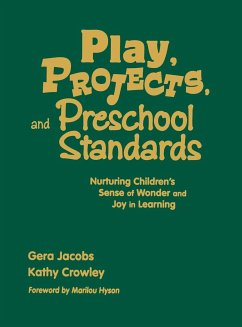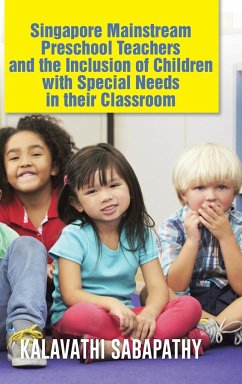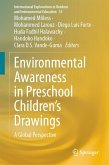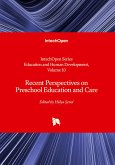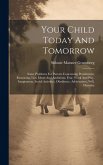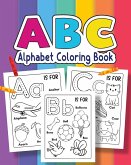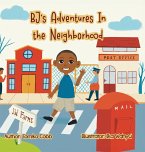Gera Jacobs, Kathy Crowley
Play, Projects, and Preschool Standards
Nurturing Children's Sense of Wonder and Joy in Learning
Gera Jacobs, Kathy Crowley
Play, Projects, and Preschool Standards
Nurturing Children's Sense of Wonder and Joy in Learning
- Gebundenes Buch
- Merkliste
- Auf die Merkliste
- Bewerten Bewerten
- Teilen
- Produkt teilen
- Produkterinnerung
- Produkterinnerung
The authors help readers create well-planned projects and activities that capture children's interest and develop the critical social and pre-academic skills identified in state standards.
Andere Kunden interessierten sich auch für
![Singapore Mainstream Preschool Teachers and the Inclusion of Children with Special Needs in Their Classroom Singapore Mainstream Preschool Teachers and the Inclusion of Children with Special Needs in Their Classroom]() Kalavathi SabapathySingapore Mainstream Preschool Teachers and the Inclusion of Children with Special Needs in Their Classroom32,99 €
Kalavathi SabapathySingapore Mainstream Preschool Teachers and the Inclusion of Children with Special Needs in Their Classroom32,99 €![Play, Creativity and Digital Cultures Play, Creativity and Digital Cultures]() Play, Creativity and Digital Cultures206,99 €
Play, Creativity and Digital Cultures206,99 €![Environmental Awareness in Preschool Children's Drawings Environmental Awareness in Preschool Children's Drawings]() Environmental Awareness in Preschool Children's Drawings97,99 €
Environmental Awareness in Preschool Children's Drawings97,99 €![Recent Perspectives on Preschool Education and Care Recent Perspectives on Preschool Education and Care]() Recent Perspectives on Preschool Education and Care135,00 €
Recent Perspectives on Preschool Education and Care135,00 €![Your Child Today And Tomorrow: Some Problems For Parents Concerning Punishment, Reasoning, Lies, Ideals And Ambitions, Fear, Work And Play, Imaginati Your Child Today And Tomorrow: Some Problems For Parents Concerning Punishment, Reasoning, Lies, Ideals And Ambitions, Fear, Work And Play, Imaginati]() Sidonie Matsner GruenbergYour Child Today And Tomorrow: Some Problems For Parents Concerning Punishment, Reasoning, Lies, Ideals And Ambitions, Fear, Work And Play, Imaginati36,99 €
Sidonie Matsner GruenbergYour Child Today And Tomorrow: Some Problems For Parents Concerning Punishment, Reasoning, Lies, Ideals And Ambitions, Fear, Work And Play, Imaginati36,99 €![ABC Coloring Book For for kids of Preschool and Kindergarten 100+ Animals, Birds, Vehicles, Toys and Alphabets ABC Coloring Book For for kids of Preschool and Kindergarten 100+ Animals, Birds, Vehicles, Toys and Alphabets]() Tuhin BaruaABC Coloring Book For for kids of Preschool and Kindergarten 100+ Animals, Birds, Vehicles, Toys and Alphabets18,99 €
Tuhin BaruaABC Coloring Book For for kids of Preschool and Kindergarten 100+ Animals, Birds, Vehicles, Toys and Alphabets18,99 €![BJ's Adventures in the Neighborhood BJ's Adventures in the Neighborhood]() Tomiko CobbBJ's Adventures in the Neighborhood25,99 €
Tomiko CobbBJ's Adventures in the Neighborhood25,99 €-
-
-
The authors help readers create well-planned projects and activities that capture children's interest and develop the critical social and pre-academic skills identified in state standards.
Hinweis: Dieser Artikel kann nur an eine deutsche Lieferadresse ausgeliefert werden.
Hinweis: Dieser Artikel kann nur an eine deutsche Lieferadresse ausgeliefert werden.
Produktdetails
- Produktdetails
- Verlag: Corwin
- Seitenzahl: 178
- Erscheinungstermin: 17. November 2006
- Englisch
- Abmessung: 286mm x 221mm x 14mm
- Gewicht: 723g
- ISBN-13: 9781412928014
- ISBN-10: 141292801X
- Artikelnr.: 22465472
- Herstellerkennzeichnung
- Libri GmbH
- Europaallee 1
- 36244 Bad Hersfeld
- gpsr@libri.de
- Verlag: Corwin
- Seitenzahl: 178
- Erscheinungstermin: 17. November 2006
- Englisch
- Abmessung: 286mm x 221mm x 14mm
- Gewicht: 723g
- ISBN-13: 9781412928014
- ISBN-10: 141292801X
- Artikelnr.: 22465472
- Herstellerkennzeichnung
- Libri GmbH
- Europaallee 1
- 36244 Bad Hersfeld
- gpsr@libri.de
Gera Jacobs is a professor of early childhood education and taught kindergarten, preschool, and the elementary grades for many years. She has published articles in a number of national and regional journals and produced a CD-ROM on inclusion for young children with special needs. She has presented at numerous state, regional, and national conferences, and has conducted many inservice presentations for teachers. She is a member of the National Association for the Education of Young Children (NAEYC) Governing Board and served on the NAEYC Affiliate Council. The Carnegie Corporation named her the South Dakota Professor of the Year in 2002. She was chairperson of the South Dakota Early Learning Guidelines Panel, responsible for writing the preschool standards for South Dakota. Jacobs and her coauthor Kathy Crowley have helped to organize an annual statewide kindergarten academy for many years in South Dakota and have presented at kindergarten institutes in other states. They are the coauthors of Play, Projects, and Preschool Standards: Nurturing Children's Sense of Wonder and Joy in Learning, published by Corwin Press and winner of a 2008 Teachers' Choice Award, sponsored by Learning Magazine, and a 2007 Distinguished Achievement Award from the Association of Educational Publishers. Their collaboration began many years ago as team-teachers in a kindergarten classroom.
Foreword by Marilou Hyson Preface Acknowledgments About the Authors 1. Addressing Preschool Standards in Developmentally Appropriate Ways Defining the Standards Meeting the Needs of All Children Addresssing Standards Through Engaging Experiences and Activities Assessing Progress Toward Meeting the Standards Summary 2. Designing the Environment With the Child in Mind Creating a Welcoming Environment Building Relationships The Power of Choice Arranging the Room for Exploration and Learning Materials for Creating Engaging Interest Areas Scheduling the Day for Play and Learning Summary 3. Developing Positive Approaches to Learning and Social-Emotional Development Developing Curiosity and Eagerness; Initiative and Persistence; Problem Solving and Reflection; Invention and Imagination; Self-Concept and Self-Confidence; Regulating Emotions; Respect and Appreciation; and Pro-Social Behaviors and Cooperation Sample Early Learning Guidelines for Approaches to Learning Sample Early Learning Guidelines for Social-Emotional Development Developing Positive Approaches to Learning and Social-Emotional Development Through Projects Designing the Environment Addressing Standards Through Engaging Experiences and Activities Supporting Children Who Are Bilingual Learners Working With Children
s Individual Needs Summary 4. Exploring the World Through Science Sample Early Learning Guidelines for Science Science as Inquiry; Physical Science; Life Science; Earth and Space Science; Science and Technology; Science, Environment, and Society Exploring the World and Science Through Projects Designing the Environment Addressing Standards Through Engaging Experiences and Activities Supporting Children Who Are Bilingual Learners Working With Children
s Individual Needs Summary 5. Learning About Our Community Through Social Studies Families/Cultures; Community/Civics; History/Time; Geography/Places, People, and Environments; and Economics Sample Early Learning Guidelines for Social Studies Learning About Our Community and Social Studies Through Projects Designing the Environment Addressing Standards Through Engaging Experiences and Activities Supporting Children Who Are Bilingual Learners Working With Children
s Individual Needs Summary 6. Engaging Children in Meaningful Literacy Reading; Writing; Listening and Phonological Awareness; Speaking/Communicating and Oral Language Development; and Learning New Languages Sample Early Learning Guidelines for Language and Literacy Engaging Children in Meaningful Literacy Through Projects Designing the Environment Addressing Standards Through Engaging Experiences and Activities Supporting Children Who Are Bilingual Learners Working With Children
s Individual Needs Summary 7. Making Mathematics Inviting Number Sense and Operations; Shapes/Geometry; Measurement; Data Analysis and Probability; and Patterns/Algebra Sample Early Learning Guidelines for for Mathematics Making Mathematics Meaningful Through Projects Designing the Environment Addresssing Standards Through Engaging Experiences and Activities Supporting Children Who Are Bilingual Learners Working With Children
s Individual Needs Summary 8. Fostering Creativity Through the Arts Visual Arts; Music; Creative Movement; and Dramatic Play Sample Early Learning Guidelines for Creative Arts Fostering Creativity in the Arts Through Projects Designing the Environment Addressing Standards Through Engaging Experience and Activities Supporting Children Who Are Bilingual Learners Working With Children
s Individual Needs Summary 9. Promoting Physical Development and Healthy Lifestyles Gross Motor; Fine Motor; and Health and Safety Sample Early Learning Guidelines for Physical Development and Health Promoting Physcial Development and Healthy Lifestyles Through Projects Designing the Environment Addressing Standards Through Engaging Experiences and Activities Supporting Children Who Are Bilingual Learners Working With Children
s Individual Needs Summary 10. Putting It All Together Addressing Standards in Developmentally Appropriate Ways Addressing Standards and Benchmarks Through Projects, Studies, and Themes Supporting the Transition to Kindergarten Final Thoughts Resources Sample Signs for Interest Areas Assessing Children
s Progress Toward Standards Sample Group Observation Tool for Language and Literacy Sample Individual Child Observation Tool for Language and Literacy Children
s Books and Music Resources for Teaching Bilingual Learners Assessment Materials Helpful Websites References For Further Reading Index
s Individual Needs Summary 4. Exploring the World Through Science Sample Early Learning Guidelines for Science Science as Inquiry; Physical Science; Life Science; Earth and Space Science; Science and Technology; Science, Environment, and Society Exploring the World and Science Through Projects Designing the Environment Addressing Standards Through Engaging Experiences and Activities Supporting Children Who Are Bilingual Learners Working With Children
s Individual Needs Summary 5. Learning About Our Community Through Social Studies Families/Cultures; Community/Civics; History/Time; Geography/Places, People, and Environments; and Economics Sample Early Learning Guidelines for Social Studies Learning About Our Community and Social Studies Through Projects Designing the Environment Addressing Standards Through Engaging Experiences and Activities Supporting Children Who Are Bilingual Learners Working With Children
s Individual Needs Summary 6. Engaging Children in Meaningful Literacy Reading; Writing; Listening and Phonological Awareness; Speaking/Communicating and Oral Language Development; and Learning New Languages Sample Early Learning Guidelines for Language and Literacy Engaging Children in Meaningful Literacy Through Projects Designing the Environment Addressing Standards Through Engaging Experiences and Activities Supporting Children Who Are Bilingual Learners Working With Children
s Individual Needs Summary 7. Making Mathematics Inviting Number Sense and Operations; Shapes/Geometry; Measurement; Data Analysis and Probability; and Patterns/Algebra Sample Early Learning Guidelines for for Mathematics Making Mathematics Meaningful Through Projects Designing the Environment Addresssing Standards Through Engaging Experiences and Activities Supporting Children Who Are Bilingual Learners Working With Children
s Individual Needs Summary 8. Fostering Creativity Through the Arts Visual Arts; Music; Creative Movement; and Dramatic Play Sample Early Learning Guidelines for Creative Arts Fostering Creativity in the Arts Through Projects Designing the Environment Addressing Standards Through Engaging Experience and Activities Supporting Children Who Are Bilingual Learners Working With Children
s Individual Needs Summary 9. Promoting Physical Development and Healthy Lifestyles Gross Motor; Fine Motor; and Health and Safety Sample Early Learning Guidelines for Physical Development and Health Promoting Physcial Development and Healthy Lifestyles Through Projects Designing the Environment Addressing Standards Through Engaging Experiences and Activities Supporting Children Who Are Bilingual Learners Working With Children
s Individual Needs Summary 10. Putting It All Together Addressing Standards in Developmentally Appropriate Ways Addressing Standards and Benchmarks Through Projects, Studies, and Themes Supporting the Transition to Kindergarten Final Thoughts Resources Sample Signs for Interest Areas Assessing Children
s Progress Toward Standards Sample Group Observation Tool for Language and Literacy Sample Individual Child Observation Tool for Language and Literacy Children
s Books and Music Resources for Teaching Bilingual Learners Assessment Materials Helpful Websites References For Further Reading Index
Foreword by Marilou Hyson Preface Acknowledgments About the Authors 1. Addressing Preschool Standards in Developmentally Appropriate Ways Defining the Standards Meeting the Needs of All Children Addresssing Standards Through Engaging Experiences and Activities Assessing Progress Toward Meeting the Standards Summary 2. Designing the Environment With the Child in Mind Creating a Welcoming Environment Building Relationships The Power of Choice Arranging the Room for Exploration and Learning Materials for Creating Engaging Interest Areas Scheduling the Day for Play and Learning Summary 3. Developing Positive Approaches to Learning and Social-Emotional Development Developing Curiosity and Eagerness; Initiative and Persistence; Problem Solving and Reflection; Invention and Imagination; Self-Concept and Self-Confidence; Regulating Emotions; Respect and Appreciation; and Pro-Social Behaviors and Cooperation Sample Early Learning Guidelines for Approaches to Learning Sample Early Learning Guidelines for Social-Emotional Development Developing Positive Approaches to Learning and Social-Emotional Development Through Projects Designing the Environment Addressing Standards Through Engaging Experiences and Activities Supporting Children Who Are Bilingual Learners Working With Children
s Individual Needs Summary 4. Exploring the World Through Science Sample Early Learning Guidelines for Science Science as Inquiry; Physical Science; Life Science; Earth and Space Science; Science and Technology; Science, Environment, and Society Exploring the World and Science Through Projects Designing the Environment Addressing Standards Through Engaging Experiences and Activities Supporting Children Who Are Bilingual Learners Working With Children
s Individual Needs Summary 5. Learning About Our Community Through Social Studies Families/Cultures; Community/Civics; History/Time; Geography/Places, People, and Environments; and Economics Sample Early Learning Guidelines for Social Studies Learning About Our Community and Social Studies Through Projects Designing the Environment Addressing Standards Through Engaging Experiences and Activities Supporting Children Who Are Bilingual Learners Working With Children
s Individual Needs Summary 6. Engaging Children in Meaningful Literacy Reading; Writing; Listening and Phonological Awareness; Speaking/Communicating and Oral Language Development; and Learning New Languages Sample Early Learning Guidelines for Language and Literacy Engaging Children in Meaningful Literacy Through Projects Designing the Environment Addressing Standards Through Engaging Experiences and Activities Supporting Children Who Are Bilingual Learners Working With Children
s Individual Needs Summary 7. Making Mathematics Inviting Number Sense and Operations; Shapes/Geometry; Measurement; Data Analysis and Probability; and Patterns/Algebra Sample Early Learning Guidelines for for Mathematics Making Mathematics Meaningful Through Projects Designing the Environment Addresssing Standards Through Engaging Experiences and Activities Supporting Children Who Are Bilingual Learners Working With Children
s Individual Needs Summary 8. Fostering Creativity Through the Arts Visual Arts; Music; Creative Movement; and Dramatic Play Sample Early Learning Guidelines for Creative Arts Fostering Creativity in the Arts Through Projects Designing the Environment Addressing Standards Through Engaging Experience and Activities Supporting Children Who Are Bilingual Learners Working With Children
s Individual Needs Summary 9. Promoting Physical Development and Healthy Lifestyles Gross Motor; Fine Motor; and Health and Safety Sample Early Learning Guidelines for Physical Development and Health Promoting Physcial Development and Healthy Lifestyles Through Projects Designing the Environment Addressing Standards Through Engaging Experiences and Activities Supporting Children Who Are Bilingual Learners Working With Children
s Individual Needs Summary 10. Putting It All Together Addressing Standards in Developmentally Appropriate Ways Addressing Standards and Benchmarks Through Projects, Studies, and Themes Supporting the Transition to Kindergarten Final Thoughts Resources Sample Signs for Interest Areas Assessing Children
s Progress Toward Standards Sample Group Observation Tool for Language and Literacy Sample Individual Child Observation Tool for Language and Literacy Children
s Books and Music Resources for Teaching Bilingual Learners Assessment Materials Helpful Websites References For Further Reading Index
s Individual Needs Summary 4. Exploring the World Through Science Sample Early Learning Guidelines for Science Science as Inquiry; Physical Science; Life Science; Earth and Space Science; Science and Technology; Science, Environment, and Society Exploring the World and Science Through Projects Designing the Environment Addressing Standards Through Engaging Experiences and Activities Supporting Children Who Are Bilingual Learners Working With Children
s Individual Needs Summary 5. Learning About Our Community Through Social Studies Families/Cultures; Community/Civics; History/Time; Geography/Places, People, and Environments; and Economics Sample Early Learning Guidelines for Social Studies Learning About Our Community and Social Studies Through Projects Designing the Environment Addressing Standards Through Engaging Experiences and Activities Supporting Children Who Are Bilingual Learners Working With Children
s Individual Needs Summary 6. Engaging Children in Meaningful Literacy Reading; Writing; Listening and Phonological Awareness; Speaking/Communicating and Oral Language Development; and Learning New Languages Sample Early Learning Guidelines for Language and Literacy Engaging Children in Meaningful Literacy Through Projects Designing the Environment Addressing Standards Through Engaging Experiences and Activities Supporting Children Who Are Bilingual Learners Working With Children
s Individual Needs Summary 7. Making Mathematics Inviting Number Sense and Operations; Shapes/Geometry; Measurement; Data Analysis and Probability; and Patterns/Algebra Sample Early Learning Guidelines for for Mathematics Making Mathematics Meaningful Through Projects Designing the Environment Addresssing Standards Through Engaging Experiences and Activities Supporting Children Who Are Bilingual Learners Working With Children
s Individual Needs Summary 8. Fostering Creativity Through the Arts Visual Arts; Music; Creative Movement; and Dramatic Play Sample Early Learning Guidelines for Creative Arts Fostering Creativity in the Arts Through Projects Designing the Environment Addressing Standards Through Engaging Experience and Activities Supporting Children Who Are Bilingual Learners Working With Children
s Individual Needs Summary 9. Promoting Physical Development and Healthy Lifestyles Gross Motor; Fine Motor; and Health and Safety Sample Early Learning Guidelines for Physical Development and Health Promoting Physcial Development and Healthy Lifestyles Through Projects Designing the Environment Addressing Standards Through Engaging Experiences and Activities Supporting Children Who Are Bilingual Learners Working With Children
s Individual Needs Summary 10. Putting It All Together Addressing Standards in Developmentally Appropriate Ways Addressing Standards and Benchmarks Through Projects, Studies, and Themes Supporting the Transition to Kindergarten Final Thoughts Resources Sample Signs for Interest Areas Assessing Children
s Progress Toward Standards Sample Group Observation Tool for Language and Literacy Sample Individual Child Observation Tool for Language and Literacy Children
s Books and Music Resources for Teaching Bilingual Learners Assessment Materials Helpful Websites References For Further Reading Index

